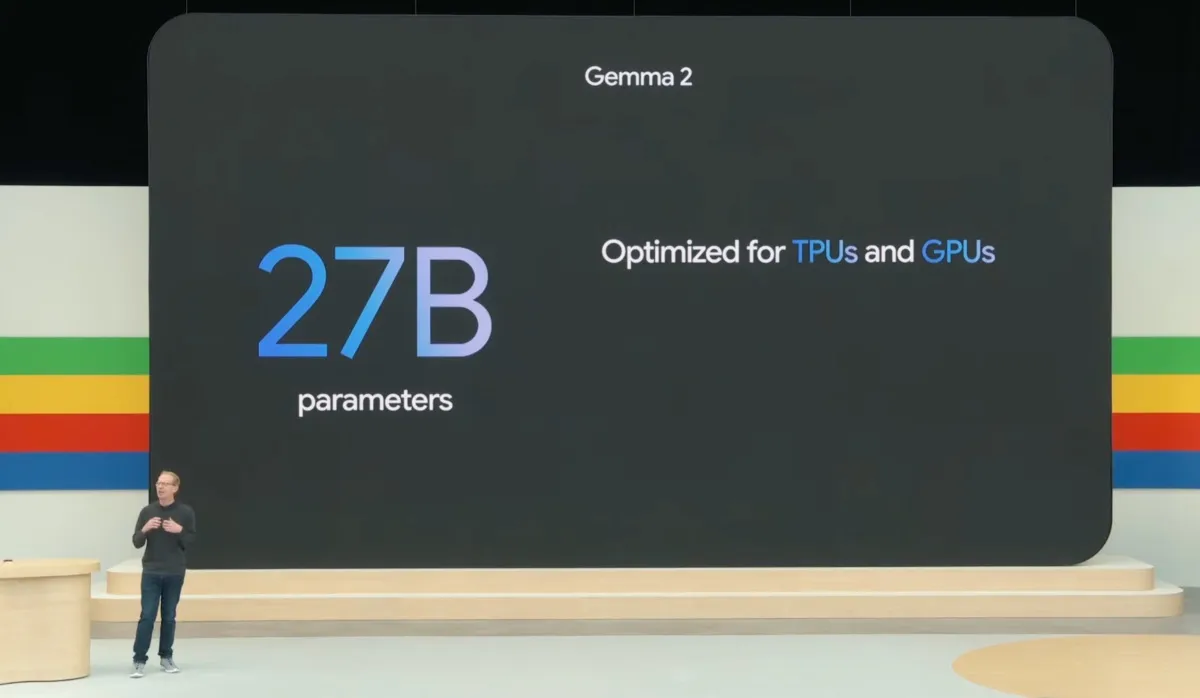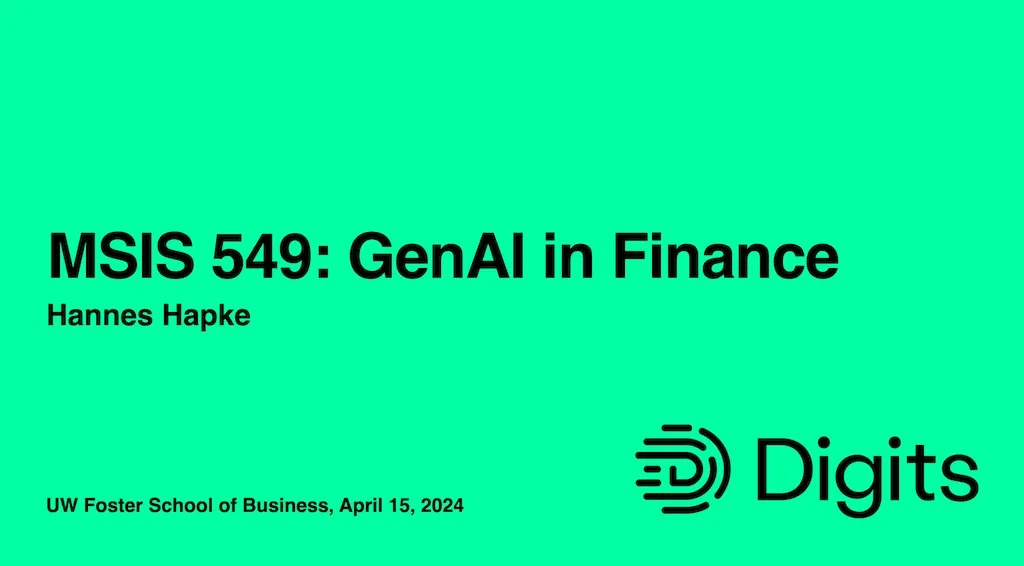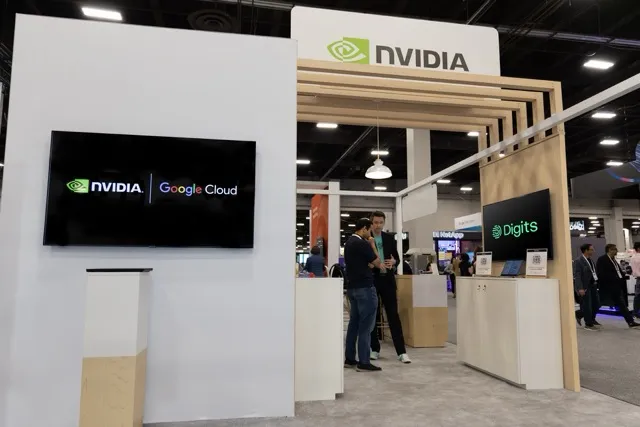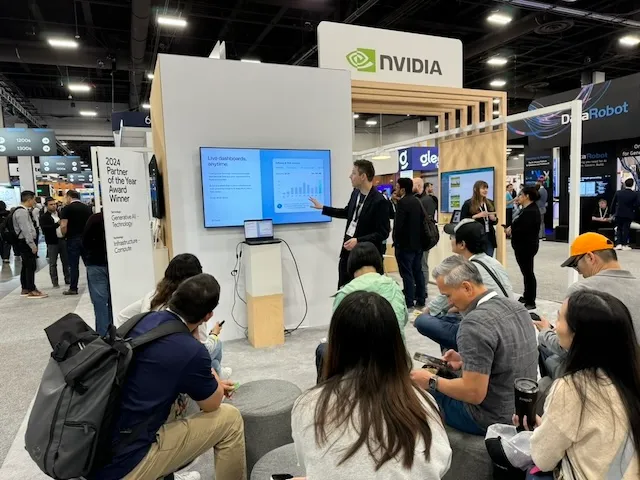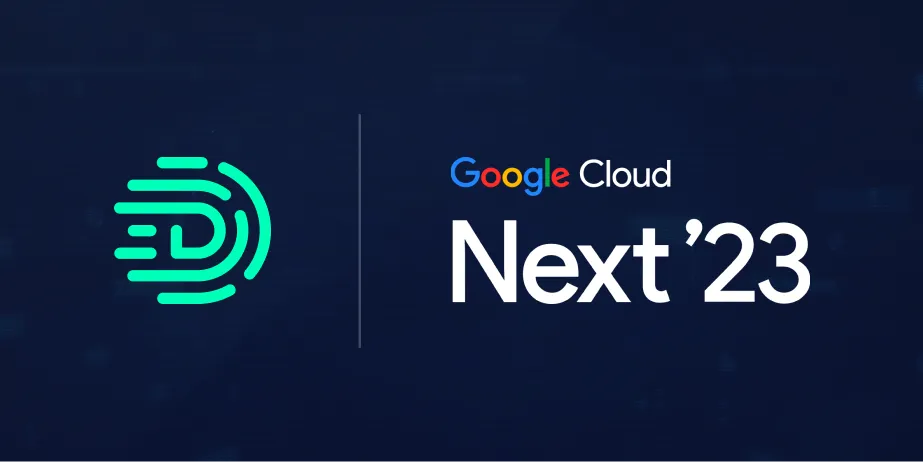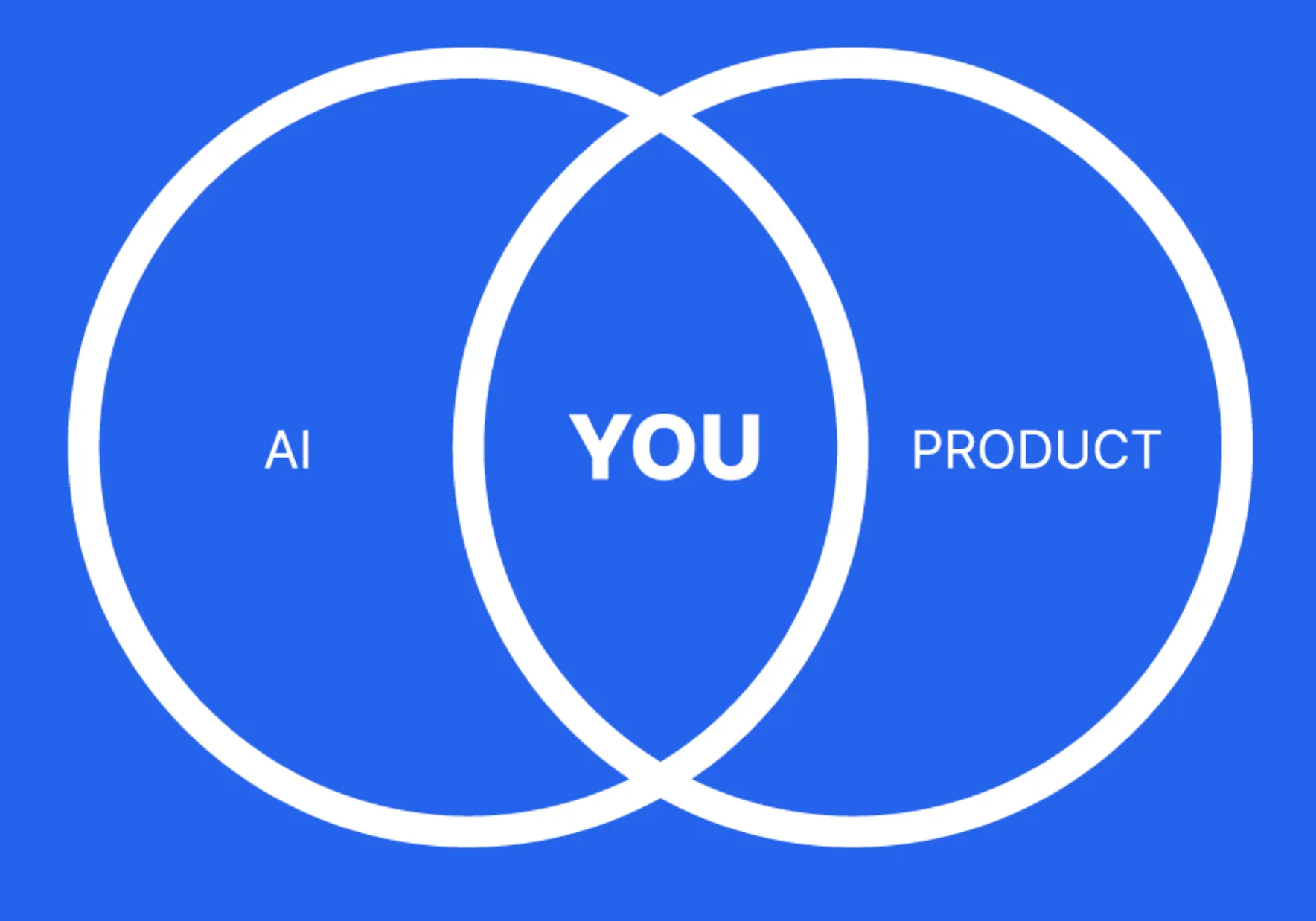
Digits Presented Lessons Learned from Deploying Large Language Models
Tucked away in the scenic splendor of Asheville, North Carolina, the AI in Production conference was held on July 19, 2024, bringing together some of the brightest minds in machine learning and artificial intelligence. The intimate gathering of 85 participants included ML experts and AI enthusiasts from renowned tech giants like Tesla, Intuit, Ramp, GitHub, and Digits. The focus of this event was clear: to delve deep into the real-world, production-level applications of machine learning, with a keen interest in the burgeoning field of Large Language Models (LLMs).

Unlike many conferences plagued by buzzwords and marketing fluff, AI in Production distinguished itself by being refreshingly genuine. The sessions were dedicated to practical machine learning solutions, steering clear of hype-driven narratives. It was a platform where every presenter showcased solutions to their problems, fostering an environment of learning, problem-solving, and genuine curiosity.
Unearthing Practical Solutions
The conference's essence lay in its authenticity. Each presentation was rooted in real-world experiences, offering attendees valuable insights into the successes and challenges of deploying large language models in production environments. Here are three presentations that stood out to Digits’ ML team.
JAX vs. PyTorch: A Comparative Perspective by Tesla
Sujay S Kumar, a Tesla engineer, delivered one of the standout talks and embarked on a detailed comparison between JAX and PyTorch, two leading frameworks in the machine learning landscape. The session was rich with technical insights, shedding light on the nuances of each framework. The engineer discussed the strengths and weaknesses of JAX in terms of flexibility and performance optimization, juxtaposed with PyTorch’s robust ecosystem and user-friendly interface. This comparative analysis equipped the audience with the knowledge to make informed decisions depending on their specific project needs and infrastructural considerations.
Ethical Implementation: Insights from GitHub
The senior Engineering Director, Christina Entcheva from GitHub, led a thought-provoking session emphasizing the ethical dimensions of deploying large language models. As these models become increasingly pervasive, the ethical implications surrounding data privacy, algorithmic bias, and societal impact are paramount. Christina fostered a sense or urgency regarding model bias and ensuring AI systems' fairness, transparency, and accountability. This talk was a timely reminder of the importance of ethical considerations, resonating deeply with the audience and sparking meaningful discussions on integrating ethical practices into everyday AI operations.
Tackling Data Curation: Best Practices from Dendra Systems’ Senior Data Scientist
Another illuminating talk was given by Richard Decal, a Senior Data Scientist from Dendra Systems, who deep dived into the challenges of curating production data sets once a machine learning model is deployed. The talk focused on the data drift phenomenon—where the target variable's statistical properties change over time, rendering the model less accurate. The data scientist shared valuable strategies for monitoring and mitigating data drift, emphasizing the importance of continuous evaluation and adjustment of data pipelines to maintain model performance. This session was particularly beneficial for practitioners seeking to enhance the robustness and reliability of their deployed models.
Beyond the Sessions: Meaningful Interactions
One of the conference's highlights was the vibrant conversations during and after the sessions. The atmosphere was charged with intellectual curiosity as participants explored the latest trends in machine learning. The intimate setting facilitated meaningful networking opportunities, allowing attendees to connect more personally.
The conference's practical focus enabled attendees to go beyond theoretical knowledge and engage with tangible solutions. Every participant left the conference with actionable takeaways, ready to implement the insights gained into their projects.
A Glimpse into the Future: Anticipation for Next Year
The resounding success of the AI in Production conference has left participants eagerly anticipating the next edition. Witnessing the cutting-edge advancements in large language models and their practical applications was a rare opportunity. The conference's genuine, no-nonsense approach ensured that every moment spent was valuable, fostering a culture of learning, innovation, and ethical AI deployment.
A Heartfelt Thank You
A significant part of the conference’s success can be attributed to the meticulous planning and execution by Julio Baros and the dedicated team of volunteers. Their efforts in organizing and facilitating the event were commendable, ensuring a seamless experience for all attendees. The invitation extended to Digit’s ML team was greatly appreciated, and the team was honored to be part of such a prestigious gathering.
Conclusion
The AI in Production conference in Asheville, NC, on July 19, 2024, was more than just an event; it was a confluence of brilliant minds, innovative solutions, and forward-thinking discussions. Focusing on practical, production-level applications of large language models provided attendees with a treasure trove of knowledge and insights. The captivating presentations, engaging conversations, and the stunning backdrop of Asheville made it an unforgettable experience.
We at Digits are already looking forward to returning next year, eager to continue the journey of learning and discovery in the ever-evolving landscape of machine learning and artificial intelligence.
In the meantime, let’s carry forward the lessons learned, implement the best practices shared, and strive for excellence in deploying large language models. A big thank you once again to Julio Baros and all the conference volunteers for making this event a remarkable success. Here’s to pushing the boundaries of AI and machine learning, one practical solution at a time.
Interested in learning more about Digits' presentation at the AI in Production conference? Stayed tuned for our upcoming blog post, where we delve deeper into our lessons learned from deploying large language models in production environments.


